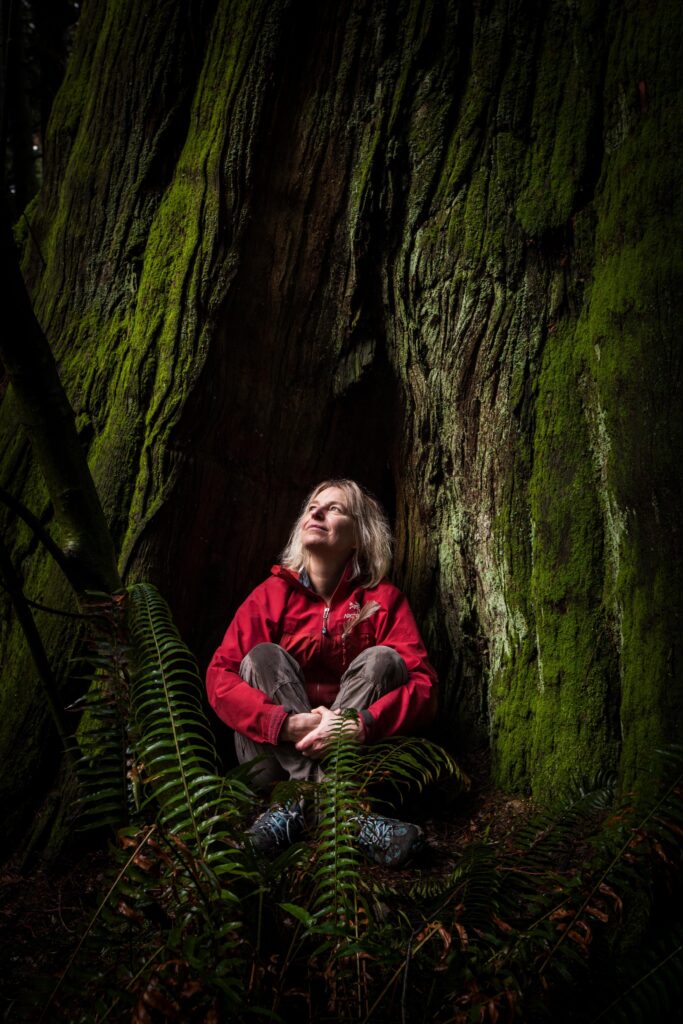
Industry News
News
UBC Mother Tree prof speaks to B.C. communities worried of natural disasters
June 1, 2023 By Steph Troughton
 Dr. Suzanne Simard. Photo courtesy The Mother Tree Network.
Dr. Suzanne Simard. Photo courtesy The Mother Tree Network. Recently, UBC faculty of forestry’s Suzanne Simard was asked to do a speaking tour of community libraries located within British Columbia’s Thompson Nicola Regional District (TNRD) and address questions about her national bestselling book Finding the Mother Tree: Discovering the Wisdom of the Forest.
Hundreds of residents showed up for each engagement that included talks in Kamloops, Merritt, Barriere, Logan Lake and Chase, among others. Whereas many were interested in hearing more about the book, the writing process and having their books signed, the majority of discussions revolved around the province’s forests and what can be done to nurture what’s left and keep them intact for generations to come.
Among the biggest crowds, and therefore most vocal, were Kamloops and Merritt citizens. From referencing the Mother Tree lessons being taught at the local high school to asking about how communities can streamline their efforts when it comes to recycling building supplies, the groups in attendance were deeply engaged. In both cities, they came from all parts of the region, including nearby Indigenous communities who are already routinely engaging in healthy forests practices.
What community residents heard consistently was the time has come to spread a Mother Tree Network message and that is to mobilize together to advance forest policy change and economic innovation.
B.C. communities, particularly forest-dependent communities, are seeing the ongoing impact of climate change outside their front doors. Throughout the TNRD and other parts of the province, they live with neighborhood reminders of what extreme climatic conditions can do to the natural landscape. Flood, drought and fire alerts are commonplace in these communities now. Not to mention talk of recovery efforts after natural disasters occur.
Through communities rallying together to call for nature-based solutions such as land stewardship being guided by First Nations and local communities or stronger policies being developed for protection of old and primary forests, voices will be heard. And government officials need that input to help guide them in developing policy that will reflect what a growing body of scientific evidence is already showing us – clearcut logging and fire-prone industrial plantations contribute to things like flood and landslide risks because those lost forests are no longer there to hold soil or sediment in place and channel precipitation underground. A growing body of scientific evidence is even showing us that the biodiversity loss resulting from global deforestation is not only impacting plant species and animal population counts but also overall human health.
In response to those who asked about the current wildfire, drought and flooding devastation being felt throughout parts of the country acutely, the repeated take home message was we have little time left to reconfigure our land management policies and practices so we need to be conserving our forests which is the fastest and most effective way to stabilize our climate.
Steph Troughton is UBC faculty of forestry’s senior communications manager for The Mother Tree Network.
Print this page